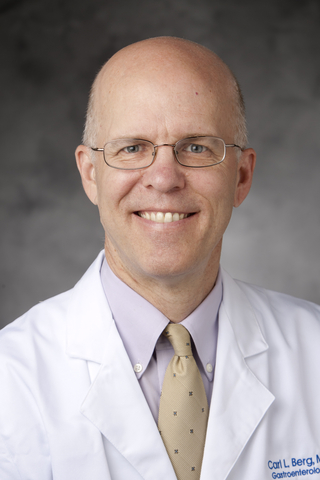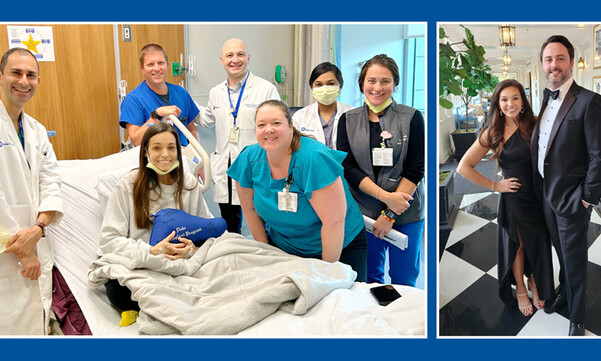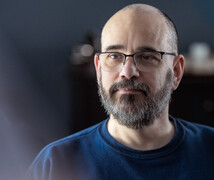John White endured countless hospital visits, falls, disorientation, and pain before he was diagnosed with a host of conditions including nonalcoholic steatohepatitis (NASH) and liver cirrhosis. Yet his MELD score -- a measurement of liver health -- wasn’t enough to get him what he needed to live a healthier life -- a liver transplant. Thanks to Carl Berg, MD, a transplant hepatologist at Duke Health, White took advantage of a new offering only available at a handful of centers in the U.S., a liver transplant from a hepatitis B-positive donor. Today the 59-year-old is healthy, hepatitis-free, and back to enjoying life.
NASH Diagnosis but No Treatment Options
During a 2016 hospital stay for severe bleeding in his esophagus, White was surprised to learn that he had advanced NASH and liver cirrhosis. Because there is no effective treatment for NASH, White’s doctors put him on medications to treat complications of the disease. Nevertheless, White spent much of his time in the hospital and suffered from disorientation and frequent falls. “I felt miserable,” said White. “I got lost driving. One day I got in my car and couldn't remember how to start it. It got to the point where I just couldn't function.”
A Referral to Duke
Because of White’s deteriorating condition, his primary care doctor near his home in Charleston, SC recommended a liver transplant. Unfortunately, White’s low MELD score placed him at the bottom of the national waitlist for a donor organ and made him a low priority at his local transplant center. “He was sick as a dog, but his score didn't reflect that,” said his wife Cynthia, who quit her job to become her husband’s full-time caregiver. White’s doctor assumed he would pursue a transplant close to home, but the Whites had done their research on liver transplant outcomes and survival rates and asked for a referral to Duke.
An Innovative Option for Liver Transplant
In June of 2019, White went to Duke for an evaluation and was approved for a liver transplant but was still limited by his low MELD score. Meanwhile, his health continued to decline. Mr. White followed Dr. Berg’s advice and explored living donation, but none of his potential donors were a match. The Whites had almost given up hope when they received a call from Dr. Berg asking if they would consider a transplant from a hepatitis B- or C-positive donor.
At first, White was not interested. “I didn’t know that hepatitis was something that could be cured or avoided,” he recalled. Once Dr. Berg explained that hepatitis B can be controlled with a vaccine and taking a daily medication and that hepatitis C is completely curable, White changed his mind.
A New Man After Successful Surgery
A few months after that conversation, the Whites learned a liver was available. The donor had both hepatitis B and C, but the organ was in otherwise good condition. There was no doubt in the Whites’ minds. “We'll take it,” they told the transplant coordinator. “We knew it was do it or die,” said Cynthia White.
“We're not satisfied with run-of-the-mill care and treating every patient the same. Our approach is to create a personalized path to transplant for every individual.”


Before surgery, White was vaccinated against hepatitis B. After surgery, he received treatment to cure him from the hepatitis C that came with the donor organ. He also takes a daily medication to suppress any potential hepatitis B infection. “He has had no issues with hepatitis, nor do I expect him to,” said Dr. Berg. “He has a healthy liver, and his medicine is working beautifully.”
Today, White is a new man. “I feel healthy -- like I can do anything.” He is grateful for his Duke transplant team. “They fought so hard and looked at every possible option. If this type of transplant hadn't become available, I think I'd either be dead or nowhere near getting a liver transplant,” he said.




